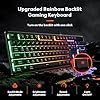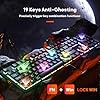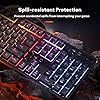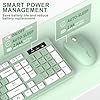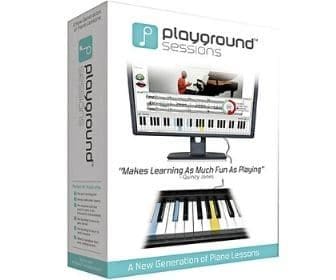Table of Contents
Introduction
The piano is a versatile and widely appreciated instrument, known for its profound ability to create beautiful music across various genres. Deciding between learning piano with a teacher or opting for self-teaching is a significant choice for aspiring pianists. Each method comes with its own set of advantages and challenges that cater to different learning styles, goals, and circumstances. In this article, we will explore these two paths to help you determine which might be the best fit for your musical journey.
Pros of Taking Piano Lessons with a Teacher
A teacher can customize lessons based on your individual learning style, strengths, and weaknesses. This can accelerate the learning process and ensure that you understand the material deeply.
The Piano Proficiency Exam Review Book
22% OffFaber Piano Adventures Primer Level Learning Library Pack - Lesson, Theory, Performance, and Technique & Artistry Books
P71 Digital Piano Review and Guide
$0.00 (as of January 10, 2026 09:52 GMT -08:00 - More infoProduct prices and availability are accurate as of the date/time indicated and are subject to change. Any price and availability information displayed on [relevant Amazon Site(s), as applicable] at the time of purchase will apply to the purchase of this product.)Final Exam Review (Piano Collection)
$1.29 (as of January 10, 2026 09:52 GMT -08:00 - More infoProduct prices and availability are accurate as of the date/time indicated and are subject to change. Any price and availability information displayed on [relevant Amazon Site(s), as applicable] at the time of purchase will apply to the purchase of this product.)Teachers provide instant feedback, which helps correct mistakes early and prevents the formation of bad habits. This is a vital component for efficient and effective learning.
A professional teacher offers a well-structured curriculum, ensuring a balanced approach to technique, theory, and performance. This systematic approach is particularly beneficial for beginners.
Regular lessons with a teacher create a schedule and milestones, which helps maintain your motivation and commitment. This accountability can be crucial for continuous progress.
Teachers also act as mentors, providing encouragement and emotional support. Their experience in overcoming similar challenges can be incredibly motivating for students.
Redragon K521 Upgrade Rainbow LED Gaming Keyboard, 104 Keys Wired Mechanical Feeling Keyboard with Multimedia Keys, One-Touch Backlit, Anti-Ghosting, Compatible with PC, Mac, PS4/5, Xbox
20% OffTECKNET Gaming Keyboard, USB Wired Computer Keyboard, 15-Zone RGB Illumination, IP32 Water Resistance, 25 Anti-ghosting Keys, All-Metal Panel (Whisper Quiet Gaming Switch)
25% OffWireless Keyboard and Mouse Combo, Full-Sized Wireless Keyboard and Adjustable DPI Mouse, 2.4GHz USB Receiver, Silent Keyboard and Mouse for PC, Windows, MAC, Desktop, Laptop (Avocado Green)
30% OffRedragon Mechanical Gaming Keyboard Wired, 11 Programmable Backlit Modes, Hot-Swappable Red Switch, Anti-Ghosting, Double-Shot PBT Keycaps, Light Up Keyboard for PC Mac
29% OffCons of Taking Piano Lessons with a Teacher
Taking lessons with a teacher can be expensive. The cost varies by region and the teacher’s expertise, but it is generally a significant ongoing expense compared to self-teaching methods.
Coordinating schedules with a teacher can be challenging, particularly for individuals with busy or irregular lifestyles. This may limit the flexibility of your practice and learning times.
Students might become dependent on the teacher for progress and troubleshooting, potentially slowing down their ability to practice and learn independently.
Not all areas have a plethora of qualified piano teachers, which could mean traveling long distances or compromising on the quality of instruction if a suitable teacher is not locally available.
The student-teacher relationship is crucial for effective learning. A mismatch in teaching and learning styles can hinder progress and make the learning process frustrating.
Tips for Self-Teaching Piano Successfully
1. Set Clear Goals: When teaching yourself piano, establishing clear, achievable goals is crucial. Whether these are short-term, like learning a new song, or long-term, like mastering a particular genre, having a roadmap keeps you motivated and focused.
2. Invest in Quality Learning Materials: High-quality resources such as online courses, instructional books, and apps can make a significant difference in your learning journey. Look for materials that offer comprehensive lessons, practice exercises, and interactive features.
3. Create a Practice Routine: Consistency is key when learning piano. Develop a regular practice schedule that fits into your daily routine. Even 20-30 minutes of focused practice each day can lead to substantial progress over time.
4. Utilize Online Tutorials and Videos: Platforms like YouTube offer a wealth of piano tutorials that can be incredibly helpful. Find reputable channels that provide clear, step-by-step instructions and cover a range of styles and techniques.
5. Practice Hands Separately: When learning a new piece, practice each hand separately before combining them. This approach allows you to focus on the individual notes and rhythms, making it easier to synchronize both hands later.
6. Record and Review Your Practice Sessions: Recording your practice sessions can help you identify areas for improvement that you might miss in the moment. Listening back allows you to assess your progress and make necessary adjustments.
7. Play Along with Recordings: Playing along with recordings of the pieces you are learning can help improve your timing and rhythm. This technique simulates playing with other musicians and enhances your overall musicality.
8. Join Online Forums and Communities: Online piano communities can provide support, feedback, and additional learning resources. Engaging with others who share your passion can offer motivation and valuable insights.
9. Be Patient and Persistent: Learning piano is a gradual process and requires patience. Celebrate small victories and understand that setbacks are part of the learning curve. Persistence will pay off in the long run.
10. Incorporate Music Theory: Understanding the basics of music theory, such as scales, chords, and rhythm, can greatly enhance your ability to learn and interpret music. Many online resources offer beginner-friendly theory lessons.
11. Experiment with Different Genres: Exploring various music genres can keep your practice sessions interesting and broaden your skills. Each genre has unique characteristics that can contribute to your overall musicality.
12. Take Breaks When Needed: Avoid burnout by incorporating breaks into your practice routine. Short, frequent breaks can help maintain your enthusiasm and prevent fatigue, ensuring that you stay productive and engaged.
Combining Traditional Lessons with Self-Study
The most balanced and effective way to learn to play the piano often involves combining the strengths of both traditional lessons and self-study. This hybrid approach provides a comprehensive learning experience that leverages the expertise of a teacher while also fostering independent growth and exploration.
Traditional lessons with a piano teacher offer structured guidance and personalized feedback. A teacher can quickly identify and correct your mistakes, help you develop proper technique, and provide you with a customized learning plan. By meeting regularly, you maintain consistent progress and accountability, which can be especially motivating for beginners.
Incorporating self-study allows for flexibility and freedom in your learning process. During self-study sessions, you can focus on specific pieces or techniques that interest you, allowing for deeper exploration and personal expression. It gives you the liberty to practice at your own pace and convenience, reinforcing what you’ve learned during your traditional lessons.
The internet is a treasure trove of educational resources for piano players at all levels. From YouTube tutorials to interactive apps like Simply Piano and Flowkey, these resources can complement what you learn in your traditional lessons. They offer diverse practice materials and often include features that make learning more engaging, such as progress tracking and interactive feedback.
A balanced practice schedule is crucial for maximizing your development. Ideally, you should have a mix of supervised sessions with your teacher and independent practice times. By allocating specific times for different aspects of learning—such as technique, theory, and repertoire—you ensure a well-rounded education. Regularly scheduled lessons with self-study time in between can help reinforce what you’ve learned and solidify your skills.
Combining traditional lessons with self-study also contributes to the development of critical thinking and problem-solving skills. While a teacher can guide you on how to approach difficult passages or concepts, self-study requires you to apply these strategies independently. Over time, this dual approach cultivates a more self-reliant and resourceful musician.
When you have the opportunity to balance structured lessons with the exploration allowed by self-study, you are more likely to stay motivated and enjoy the learning process. The variety can prevent burnout and keep your interest alive, making the journey of learning piano more fulfilling and enjoyable.
How to Choose the Right Piano Teacher for You
Choosing the right piano teacher is crucial to your musical development and enjoyment. Consider the following factors to find a teacher who will best suit your learning style and musical goals:
Identify Your Goals
Before you begin your search, understand what you want to achieve with piano lessons. Are you interested in classical training, jazz, pop, or maybe preparing for examinations like ABRSM? Knowing your goals can help you find a teacher whose expertise and teaching style align with your objectives.
Check Qualifications and Experience
Look for a teacher with a solid educational background in music. This includes formal degrees or certifications from recognized institutions. Experience is equally important; a seasoned instructor can provide insights and techniques that are polished over years of teaching and performing. Additionally, consider instructors who actively participate in professional organizations or continuous education themselves.
Teaching Style and Personality
Every teacher has their own teaching style. Some might be very structured, while others more flexible. Think about what works best for you and consider having a trial lesson to get a feel for the teacher’s methodology and personality. The right teacher should inspire and motivate you, not just instruct you.
Consider Logistics
Practical matters such as location, scheduling, and cost must also be taken into account. A nearby teacher makes commuting easier, and a flexible schedule can relieve the stress of fitting lessons into a busy day. Lastly, ensure their fees are within your budget and check if there are hidden costs like recital fees or materials.
Ask for Recommendations
Word of mouth is a powerful tool. Ask friends, family, or local schools for recommendations on piano teachers. Hearing firsthand experiences can provide valuable insights into how a teacher interacts with students and what results they have achieved.
Interview Potential Teachers
Once you have a list of potential teachers, arrange interviews. These sessions are excellent opportunities to ask about their teaching philosophy, pupil achievements, and expectations. Make sure to also discuss how they handle practice schedules and feedback. This dialogue can help you gauge how well they might support your learning process.
Assess Communication Skills
A good teacher communicates effectively, not just about music, but also listens and responds to a student’s needs. During the interview, notice if they are attentive and whether they can clearly articulate ideas and instructions.
Commitment Level
Ensure the teacher’s commitment matches your ambitions. Some teachers might prefer pushing students toward high levels of achievement, which is great if you’re aiming for a professional career. Others might specialize in beginners or hobbyists. Finding a match in commitment can prevent future frustrations for both parties.
When to Consider Switching from Self-Taught to Teacher-Led
If you’ve been learning on your own and notice that you’ve hit a plateau, it might be time to consider a teacher. A teacher can provide personalized feedback and help you break through barriers that are difficult to overcome on your own.
Poor technique can lead to injury and limit your ability to play more advanced pieces. If you notice pain while playing or are uncertain about your technique, a teacher can correct these issues early on to prevent long-term problems.
Learning at the right pace is crucial. If you find yourself either moving too quickly and missing critical foundational skills, or too slowly and losing motivation, a teacher can offer a structured approach tailored to your needs.
Staying motivated can be challenging without external accountability. Regular lessons with a teacher can provide ongoing motivation and a sense of commitment, helping you stay dedicated to your learning journey.
Understanding the intricacies of music theory can be daunting when self-teaching. A knowledgeable teacher can simplify complex concepts and show you how to apply them practically, making advanced learning more accessible.
If you’re struggling with performance anxiety, a teacher can provide strategies to manage it. They can offer opportunities for low-pressure performances to build confidence and gradually ease you into more public settings.
If you have specific goals like preparing for exams, auditions, or performances, a teacher’s guidance can be invaluable. Specialized training and targeted practice plans can make the difference between meeting your objectives and falling short.
With so many resources available, it can be overwhelming to know which ones to follow. A teacher can curate a personalized roadmap for you, ensuring that you focus on the most effective methods and materials for your skill level.
Self-teaching can often lack the critical feedback necessary for improvement. Constructive criticism from a teacher can offer new perspectives and insights that are hard to gain independently.
Teachers often provide opportunities to interact with other students through group lessons, recitals, or workshops. Engaging with a community can enhance your learning experience and provide additional motivation and enjoyment.
Conclusion
Both learning the piano with a teacher and self-teaching present unique benefits and challenges. Learning with a teacher offers structured guidance, expert feedback, and immediate correction of mistakes, fostering a solid foundation in musical theory and technique. This approach typically ensures a faster and more efficient learning curve for most students. On the other hand, self-teaching promotes independence, allows flexibility, and can be highly motivating as learners explore based on their interests. However, it may lead to the development of poor habits and slower progression without the structured feedback from a professional. Ultimately, the choice between the two methods should consider personal learning styles, goals, and accessibility to resources.









